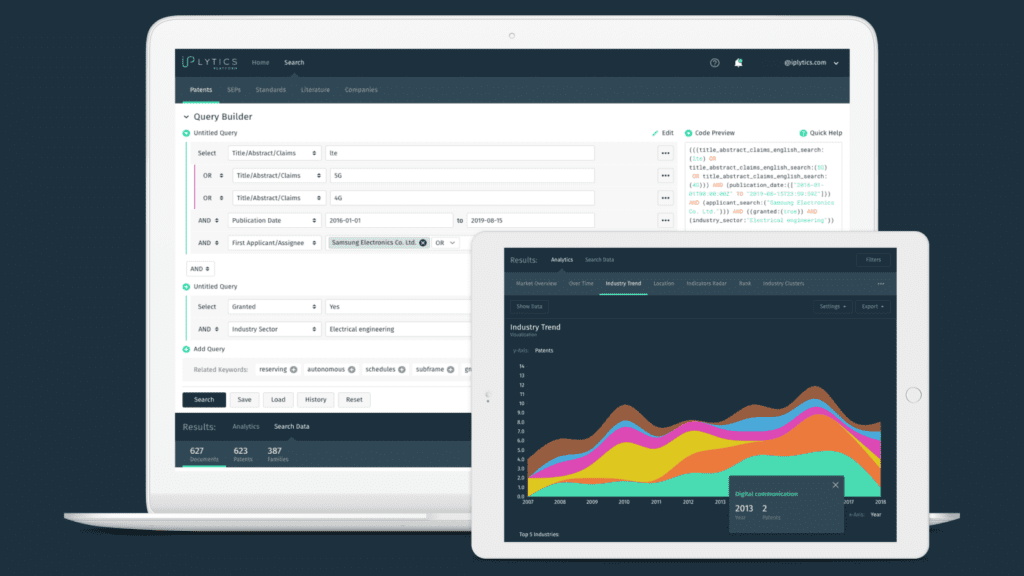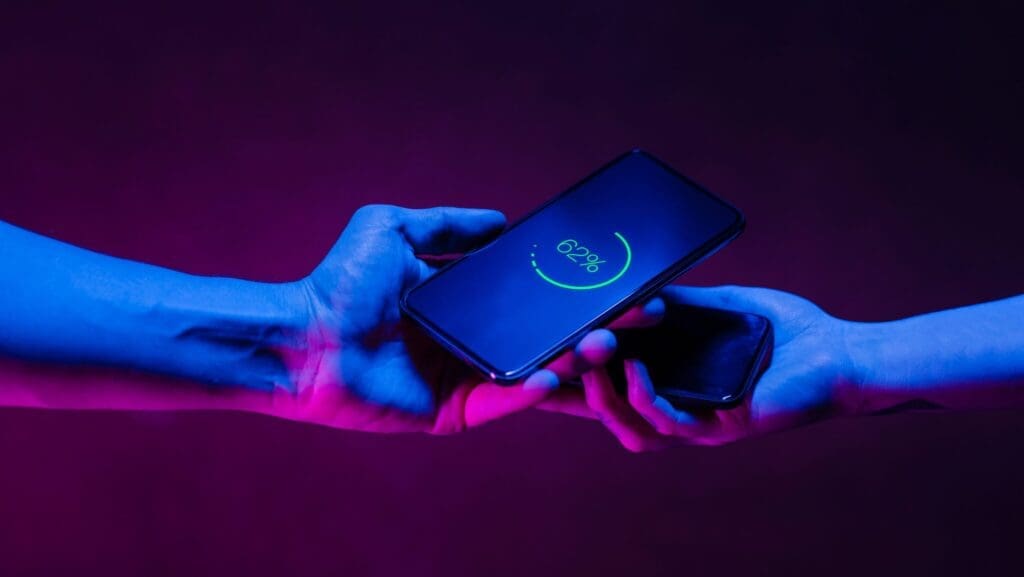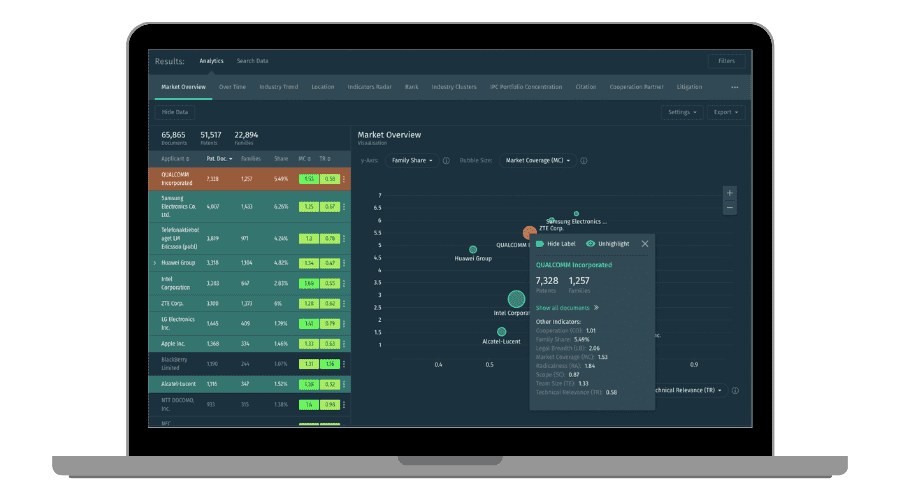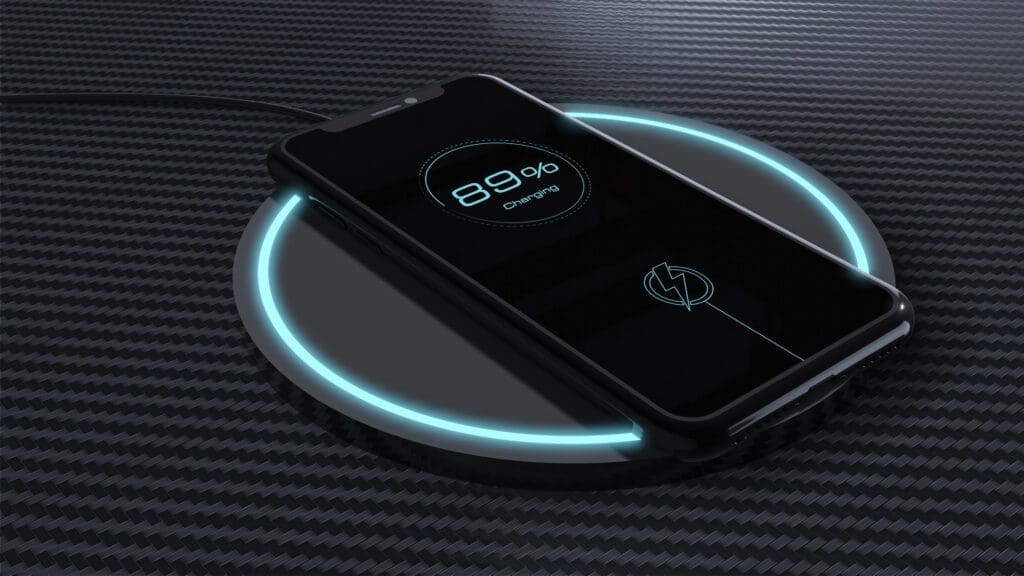
Qi Wireless Charging
Bringing clarity to the wireless charging patent landscape
Navigating the Qi standard patent landscape
The Qi wireless charging sector is experiencing remarkable expansion, as evidenced by over 9,000 Qi-certified products and the impressive sale of 1 billion devices in 2023 alone. This surge is further highlighted by the LexisNexis® IPlytics report on “Who Leads the Qi Wireless Charging Patent Race?”, which indicates a seventeen-fold increase in Qi-related patent families over the past decade, marking a significant upturn in the industry’s growth and innovation. This evolving landscape presents both challenges and opportunities, particularly concerning potentially essential patents. With a diverse competitive landscape of Qi patent owners dominated by entities from the U.S., Japan, and Korea—Japanese companies holding the largest market share—the need for clarity and strategic insight into undeclared patents has never been more critical.
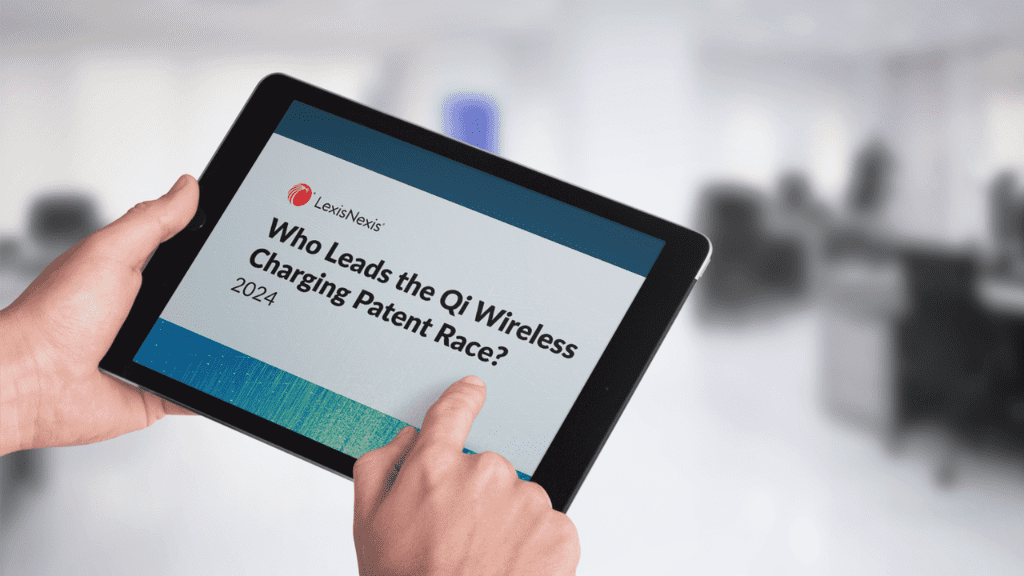
Report
Who Leads the Qi Wireless Charging Patent Race?
To identify Qi-related patents, the IPlytics team has utilized LexisNexis® Cipher machine learning classification. The Cipher algorithm uses true positive examples (e.g. pooled patents) and true negative examples of Qi unrelated patents as training data to build a technology landscape.
What are undeclared patents?
In the rapidly evolving landscape of wireless charging technology, potentially essential patents pose a subtle challenge. Unlike other sectors, the Qi wireless charging domain lacks a stringent mandate for comprehensive patent declarations, leading to many relevant patents potentially essential to the Qi standard remaining not declared to standard-setting organizations and thus not public. This obscurity in the lack of declarations creates a murky landscape where undeclared patents can unexpectedly surface, asserting claims that may disrupt commercial strategies and legal frameworks, and escalate litigation and negotiation costs due to the reliance on divergent data sets for Qi patent licensing analyses.

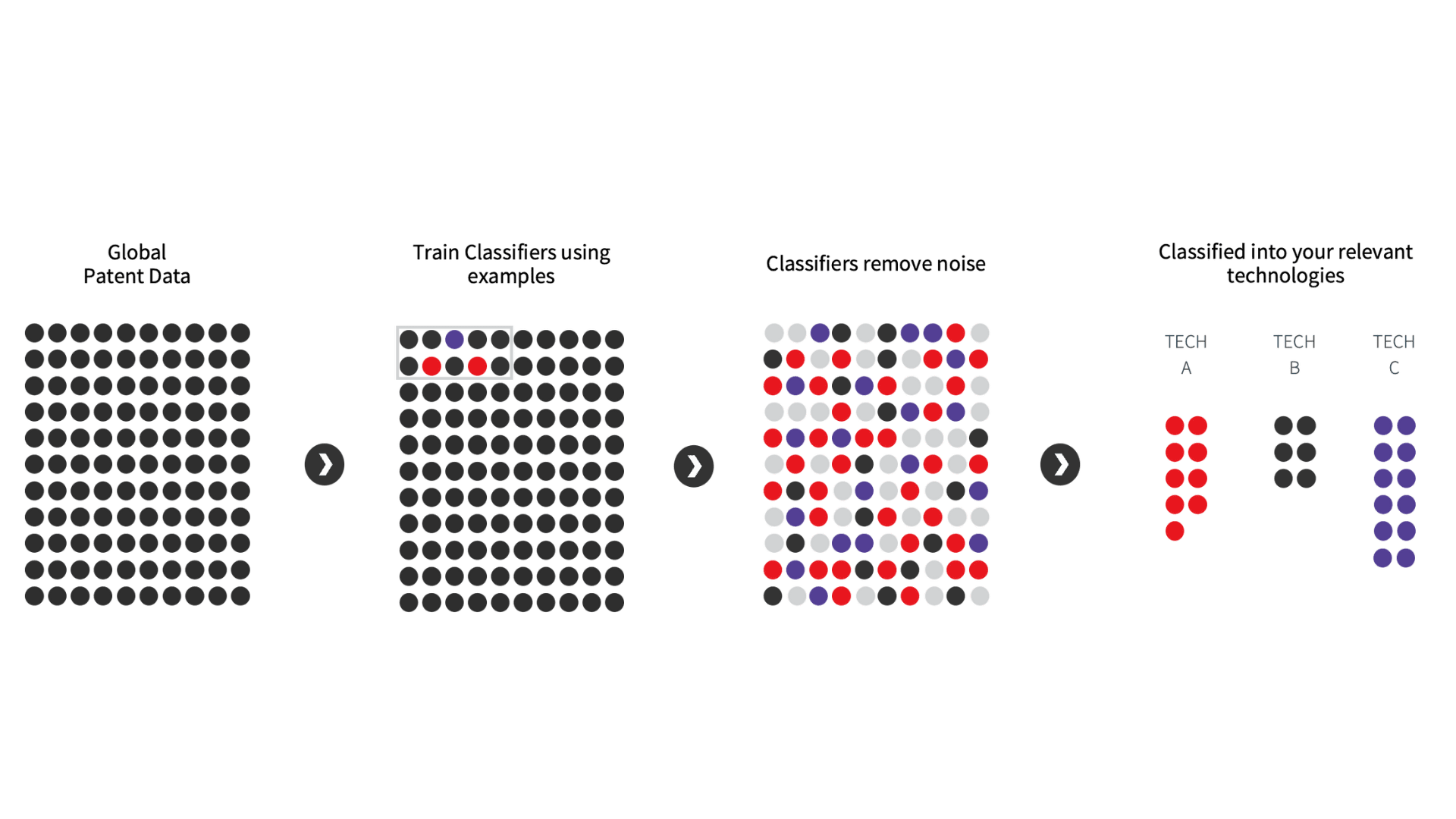
Identifying Qi undeclared patents
The IPlytics team has utilized LexisNexis Cipher machine learning classification to identify Qi-related patents. The Cipher algorithm uses true positive examples (e.g. pooled patents) and true negative examples of Qi unrelated patents as training data to build a technology landscape. From this broad Qi patent landscape, random samples of patents were presented to subject matter experts to confirm Qi patents and to identify patents that have no relation to the Qi standard. These new examples of true positive and true negative patents are then again used as training data — an iterative approach to create a comprehensive technology landscape of Qi-related patents. However, it should be noted that the Qi-related patent landscape includes both verified standards patents but also non-SEPs — in other words, patents related to the Qi technology but not essential to the Qi standard implementation.
Understanding the challenges posed by undeclared patents
A comprehensive Qi patent landscape is critical for successful SEP licensing. IPlytics’ Qi patent landscape reveals related patents not listed publicly.
For IP portfolio manager, licensing professionals, and Consultants and Law firms, addressing these challenges is paramount:
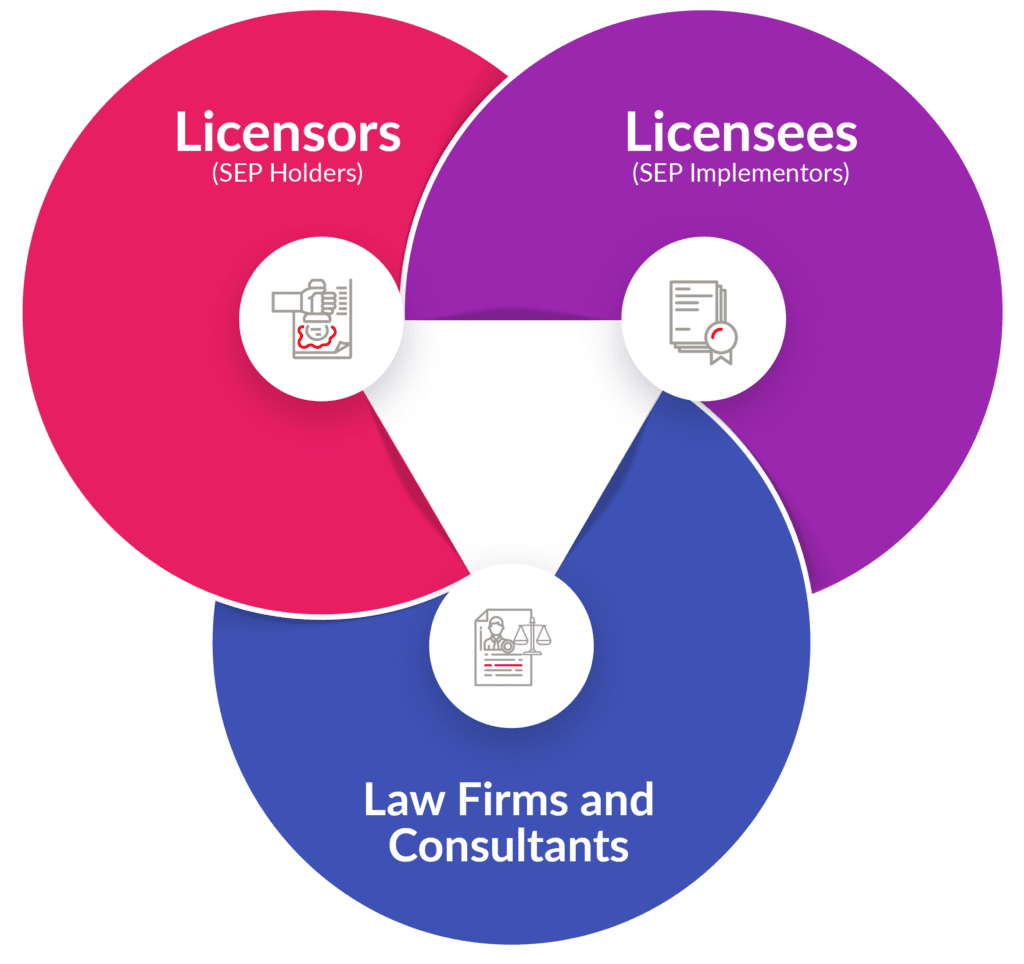
For those in the Qi technology space, the dearth of data on undeclared patents creates a landscape fraught with uncertainty. Monitoring Qi patent filing and ownership helps quantifying risks and forecast future royalty expenses or income. Licensors, licensees, and IP attorneys must, therefore, arm themselves with the tools to uncover hidden Qi patents, ensuring due diligence is met, and strategic decisions are grounded in comprehensive information. In summary, a comprehensive understanding of the Qi patent landscape obtained through analytics empowers both SEP licensors and SEP licenses with information to negotiate effectively on royalties and plan their IP budgets.
How to navigate the undeclared patent landscape
LexisNexis® IPlytics introduces innovative tools and methodologies designed to uncover and understand the impact of undeclared patents on the Qi wireless charging market:

Exceptional Patent Identification
Our platform offers unmatched precision in identifying undeclared patents, providing a competitive edge in wireless charging technology.

Advanced-Data Analysis
Access to meticulously curated data enables comprehensive analysis of undeclared patents, streamlining the path to informed decision-making and successful negotiations.

Ownership Clarity
We simplify the discovery process of patent ownership, making it easier to determine “who owns what” in the rapidly evolving Qi patent landscape.
Unveiling insights into Qi standard patent landscape with LexisNexis® IPlytics
LexisNexis® IPlytics sets the standard for data accuracy and transparency in the Qi wireless charging space. Our cutting-edge Classification powered by Cipher (AI classification system), enriched with expert data curation, efficiently identifies undeclared yet crucial Qi patents. This approach not only aids in navigating the complex patent landscape but also provides a refined view of the market, enabling stakeholders to make informed decisions.
The report, “Who Leads the Qi Wireless Charging Patent Race?“, reveals significant growth in the Qi patent landscape, with key players like Philips, Qualcomm, Samsung, Apple, and Sony at the forefront. Despite the increase in undeclared patents, our comprehensive analysis brings much-needed clarity to the sector, facilitating smoother negotiations and strategic planning.
Dive deep on how to capitalize on emerging Qi technology market opportunities
To fully grasp the implications of the Qi standard’s evolving patent landscape and how LexisNexis® IPlytics’ new undeclared coverage can benefit your strategic planning, join us for the two upcoming insightful webinars:
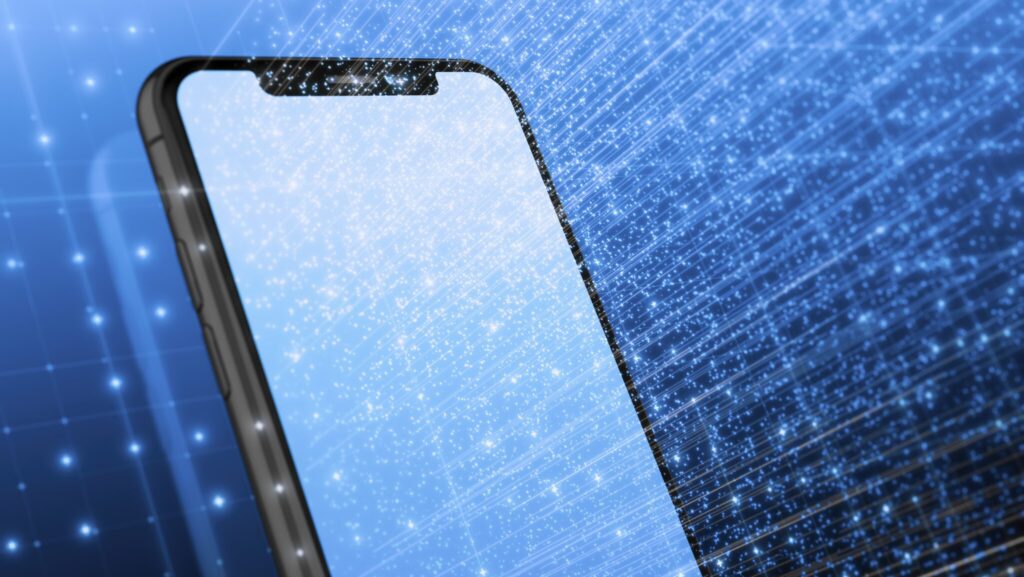
On-demand Webinar : Bringing Clarity to Standard Essential Innovation — Tuesday, April 23 at 5 PM CEST, 11 AM ET
In second webinar, we will uncover the challenges of SEP data transparency, learn about the Qi standard’s implications for patent declarations, and foresee the impact on industry-wide Qi adoption and innovation.
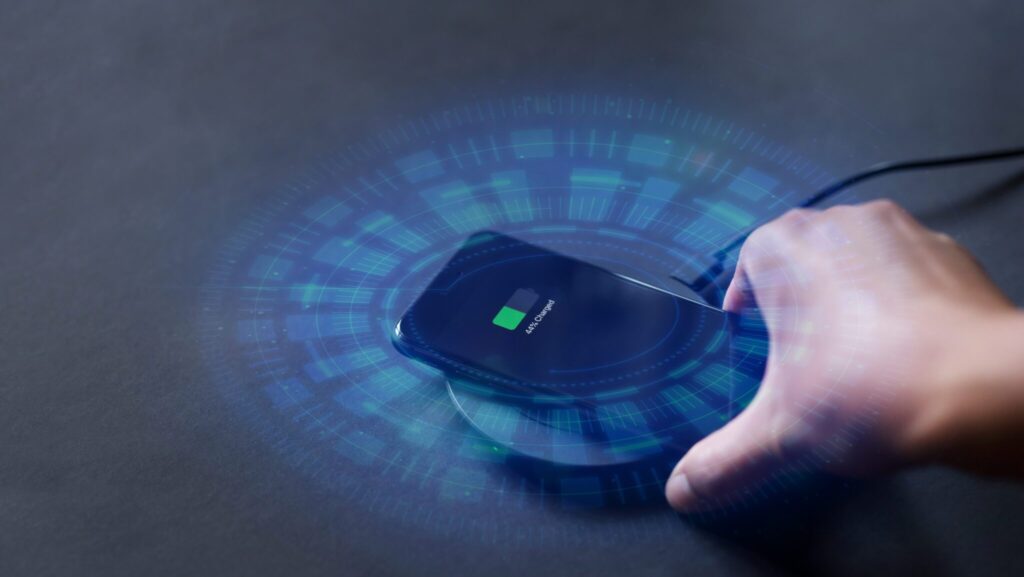
On-demand Webinar : Who is Leading the Qi Wireless Charging Patent Race?
The first session will dive deep into the report’s findings, offering a forum to discuss the intricacies and opportunities revealed. Explore the Qi wireless charging patent landscape, understand SEP market dynamics, and discover future trends in wireless technology adoption and licensing practices.
Take the chance to enhance your understanding and stay at the forefront of wireless charging innovation. Register now to secure your spot and be part of the conversation that will shape the future of Qi technology.
Please fill out the form to schedule a demo with us.
